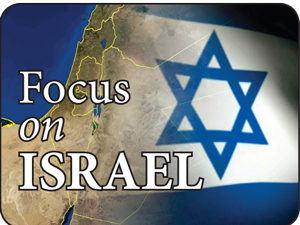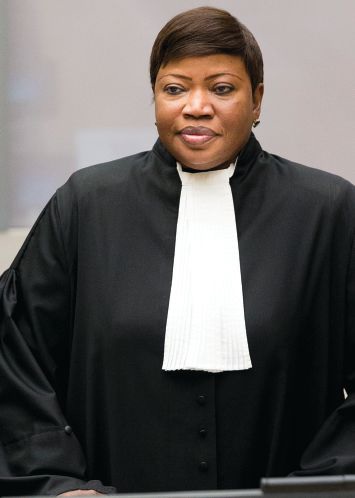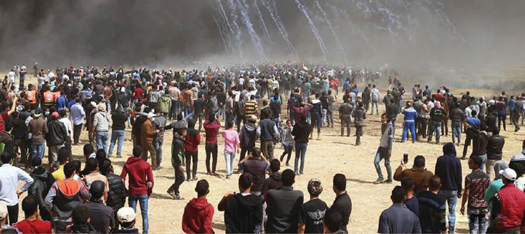World Court prosecutor calls out Israel for alleged war crimes
By Brian E. Muhammad -Contributing Writer- | Last updated: Jan 8, 2020 - 12:50:04 PMWhat's your opinion on this article?

|
Prosecutor Fatou Bensouda made the announcement after concluding a preliminary examination of the “situation in Palestine” over several years showed enough credible evidence to open an investigation.
“I am satisfied that there is a reasonable basis to proceed with an investigation into the situation in Palestine,” said Ms. Bensouda. “In brief, I am satisfied that war crimes have been or are being committed in the West Bank, including East Jerusalem, and the Gaza Strip,” she said.
Because of complicated and highly disputed borders, Ms. Bensouda also sought a decisive ruling on the scope of the ICC’s territorial jurisdiction. She explained in court papers that determining jurisdiction is also a priority because while Palestine is a signatory of the ICC since 2015, Israel is not.

Chief Prosecutor Fatou Bensouda is seen in the courtroom of the International Criminal Court at The Hague, Netherlands.
|
The preliminary examination resulted from a May 2018 referral to the ICC by The Palestinian Authority to look into Israeli atrocities going back five years to June 2014.
The probe would also include alleged violations by Hamas and other armed Palestinian groups involved in the ongoing resistance struggles against the Zionist state, according to the prosecutor. Pro-Palestinian advocates disagree with investigating Palestinians.
Ali Abunimah, founder of the online Electronic Intifada, in tweets over Dec. 20 and 21 said going after Palestinians is Ms. Bensouda’s attempt to give “false balance” and nothing Palestinians did in 2014 is remotely “grave” enough to merit an ICC probe.
“Everything they did stems from Israeli occupation and aggression which is the cause and source of all violence,” Mr. Abunimah wrote.
“Palestinian armed groups were legitimately resisting an all-out US/EU-backed Israeli aggression on a caged ghetto that slaughtered an average of 11 children per day in Gaza for 51 days,” he tweeted Dec. 20.
Mr. Abunimah was referring to the “Gaza War” of August 2014 that killed an estimated 2,100 Palestinians—mostly civilians, including women and children. “To place resistance in the same category of ‘war crimes’ as the aggressor is morally depraved,” he said.
Reactions to the ICC decision were mixed. The Palestinian Authority sees the ICC decision as a major victory in long years of struggle with President Mahmoud Abbas calling it a “great” and “historic” day.
“We have achieved what we want, and from this day on, the ICC machine will start accepting the cases that we have previously presented,” he said.
Palestinian Prime Minister Mohammad Shtayyeh said the announcement “constitutes a stand for justice and truth.”
“We will make every possible legal effort to try Israel for the war crimes it committed against our people in the Gaza Strip, al-Quds and the West Bank,” he said.

Palestinian protesters run for cover from tear gas canisters fired by Israeli troops during clashes on the Gaza-Israel border.
|
In a Dec. 20 statement welcoming the move as a positive step, Dr. Hanan Ashrawi, a member of the Palestine Liberation Organization executive committee, added: “The era of Israeli exceptionalism and impunity is over.”
“Israel must pay for its crimes and the Palestinian people will not accept exclusion from the universality of human rights,” she declared. “We are empowered and determined to achieve justice, redress, and accountability through international mechanisms, including the ICC.”
In contrast Israeli Prime Minister Benjamin Netanyahu—who is under an internal corruption probe—called the move “absurd” and “pure anti-Semitism” on the part of Ms. Bensouda. The ICC holds no authority to adjudicate the matter, he added.
“It has jurisdiction only in lawsuits presented by sovereign states, but there has never been a Palestinian state,” argued Mr. Netanyahu. “We will not accept or acquiesce to this injustice. We will continue to fight it with all the tools at our disposal.”
The U.S., whose foreign aid largely helps fund Israel, joined Tel Aviv in rejecting the decision. In early 2019 Washington— also not an ICC signatory—clashed with the court after being summoned for a war crimes probe over alleged violations at U.S. Central Intelligence Agency prison sites in Afghanistan and other countries. The State Department responded to the investigation by threatening sanctions on ICC officials and blocking U.S. entry visas for court investigators.
In a Dec. 20 tweet, U.S. Secretary of State Mike Pompeo dismissed investigating Israel as unjustified.
“The ICC prosecutor raised serious questions about the ICC’s jurisdiction to investigate Israel. Israel is not a state party to the ICC. We firmly oppose this unjustified inquiry that unfairly targets Israel. The path to lasting peace is through direct negotiations,” Mr. Pompeo tweeted.
In court papers Ms. Bensouda argued the ICC has jurisdiction in the territories because of the status of Palestine as the 123rd State Party to the Rome Statute that established the ICC. She further pointed out United Nations General Assembly Resolution 67/19 authorized Palestine’s status as a UN “nonmember observer State,” and afforded it the ability to sign on to international treaties like the ICC Rome Statute.
There is skepticism that Israel will really be held to task for war crimes by the court. Previously, the ICC and prosecutor have indicted and mostly heard cases against African defendants.
“This is all well and good, but at the end of the day what does it really mean?” asked Mauri Saalakhan of the Peace and Justice Foundation, an advocacy group.
He pointed out a pattern of weakness in the world community when it comes to holding Israel accountable for crimes against humanity and years of flouting United Nations resolutions.
“Countless resolutions that has been made against the state of Israel, the investigations (and) this latest critique … it really doesn’t mean anything in terms of substance,” said Mr. Saalakhan. “Because the United Nations has been for the most part, a paper tiger; it lacks enforcement capabilities.”
Mr. Saalakhan doubts justice will be achieved through the ICC and UN systems saying Israel receives “protection,” “material support” and “diplomatic cover” from the U.S. that sways the Security Council. The U.S. also holds veto power to quash measures to hold Israel accountable.
Mr. Saalakhan is not optimistic Israel will be sanctioned the way other nations, leaders from Africa and other places are because they don’t enjoy Israel’s impunity and were tried and punished by the ICC.
But, if successful, current and former Israeli officials and military personnel could face global arrest warrants as a result of the probe. The ICC tries individuals and after any investigation the obligation is on governments to hand over indicted suspects. It’s doubtful Israel will subject itself to such requirements.
“Can you imagine Netanyahu or one of his top ministers traveling to say the United States to Brittan, France, to Brussels (and) being placed under arrest and handed over to the criminal court?” Mr. Saalakhan rhetorically asked. “That’s not going to happen.”
ICC judges have 120 days to decide on the jurisdiction question. The ICC announcement against Israel was made Dec. 20.
Mr. Saalakhan, a Washington-based activist, said there is a certain amount of “symbolic value” in the ICC move. However, he added, beyond symbolism “there’s very little.”
INSIDE STORIES AND REVIEWS
-
-
About Harriett ... and the Negro Hollywood Road Show
By Rabiah Muhammad, Guest Columnist » Full Story -
Skepticism greets Jay-Z, NFL talk of inspiring change
By Bryan 18X Crawford and Richard B. Muhammad The Final Call Newspaper @TheFinalCall » Full Story -
The painful problem of Black girls and suicide
By Charlene Muhammad -National Correspondent- » Full Story -
Exploitation of Innocence - Report: Perceptions, policies hurting Black girls
By Charlene Muhammad -National Correspondent- » Full Story -
Big Ballin: Big ideas fuel a father’s Big Baller Brand and brash business sense
By Bryan Crawford -Contributing Writer- » Full Story






 Click Here Stay Connected!
Click Here Stay Connected!








